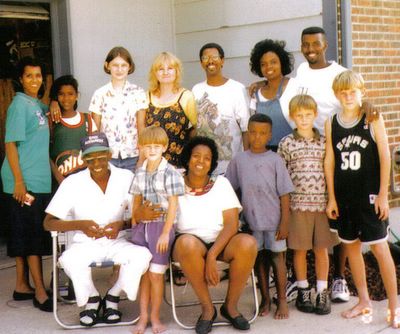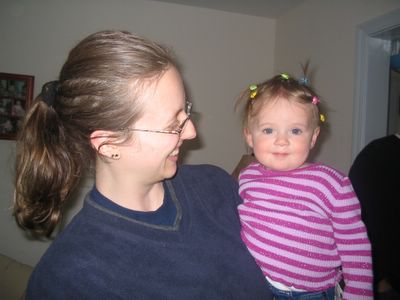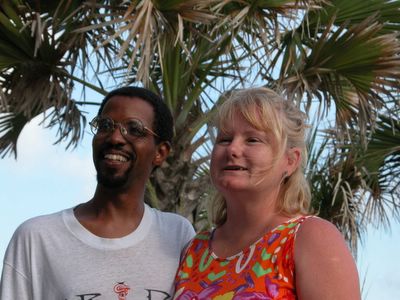
My family 1986. front row: Dad, Timothy, Mom, nephew KC, son Charlie, son Thomas. back Row: sister Marcia, niece Rena, daughter Kimberly, Laura, Me, sister-in-law Michelle, brother Keith. Missing brother Carl and nephew Shaun

We introduced our Embracing Church course with personal reflections on why we were there. Here’s a version of my comments:
"My crisis of faith began when I was in graduate school studying Christian education. I was serving as a junior high minister at a large church in Nashville. This church was born out of a rather restrictive heritage, but had experienced a charismatic awakening several years earlier. They were now at the forefront of the charismatic movement. From my assessment they were beginning to become as restrictive about their charismatic experiences as they had been in the past with other issues.
But I’m in graduate school, studying theology and Bible at one of the country’s most progressive divinity schools. I didn’t agree with many of my professors’ biblical conclusions. But I tried to show my understanding of the issues while disagreeing with the conclusions.
While few of the issues were new to me, I hadn’t anticipated that the tension would affect me so profoundly. I hadn’t accounted for how my livelihood and my spiritual life depended on my making some sense of this church and this academic experience.
One reason I hadn’t anticipated the tension was that I was used to living with diversity. First, I’m African American. And as WEB DuBois put it, we Black Americans all live with twoness.
Second, I was nurtured in the Protestant Sunday Schools on military bases, where denomination meant close to nothing.
Third, I had lived for the longest time in my life in Hawaii, where the cultural salad bowl meant than everyone knew exactly who they were ethnically regardless of the mixes, we were proud of whatever we were, and we were continually learning to live together.
Which leads me to the other reason I am here. Nothing has grieved me in the Christian church as much as the lack of unity. I saw it most blatantly when I moved to Nashville 20 years ago and looked for a multiracial church. In this city of churches, multiracial congregations are still hard to find. And while the reasons for such are complicated, I still long for the reality of unity."
I didn’t mention the rest of the story evidenced by my family picture above. The pic’s almost a decade old. My dad has since left us. My kids, nephews and nieces are a lot bigger. And (depending on your accounting) we have added one, four or six grandchild(ren) to the picture.
Since the racial embracing is obvious, let me make clear that Laura and I did not marry to make a point. It was (and is) pure love, but it was a hard-fought decision, trying to anticipate possible problems for us and our children. In the end, hard-fought (not mushy) love won out. The hard-fighting hasn’t ended, though I think we’d both say it is mostly internal, along the lines of the theological tension mentioned above. The love of God and one another, and the shared mission to follow Jesus have sustained us.




